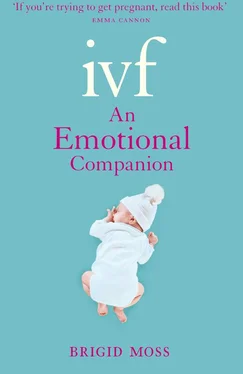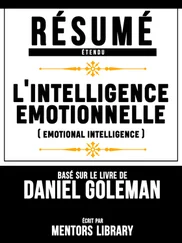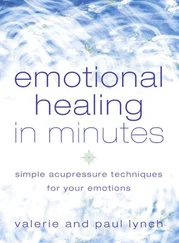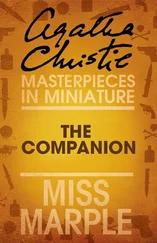Q: WERE YOU OFFERED ANY OTHER TREATMENTS FOR PCOS?
After we decided to stop having IUI, I did see a consultant who recommended a procedure called ovarian drilling, where a surgeon makes holes in your ovaries in order to restart your cycle. I did consider it, even went on the waiting list, but it seemed very extreme. I thought of it as a last resort, if IVF didn’t work.
Q: HOW ARE YOUR PCOS SYMPTOMS NOW?
The boys were born in January and I was thin within a couple of months, but by June of that year, I had put on loads of weight again. I could also see that I was a little more hairy too. Even though metformin had suited me so well, and the doctors were happy for me to go back on it, I didn’t want to take it. I didn’t like the idea of being on medication for ever. And I didn’t think, with the babies, I’d remember to take it three times a day, in any case. I kept thinking: maybe the symptoms will calm down or I’ll eat less. When the twins were three, I decided to go back on metformin. It has made a difference – I’m definitely less hungry and I’m down to a size 10/12 again.
Q: DID YOU TELL PEOPLE WHILE YOU WERE HAVING IVF?
I was quite happy to tell some people about our fertility treatment, but not everyone. I worked up until twenty-nine weeks; one of my fi nal tasks was organising a celebrity event. Everyone there kept saying to me, ‘Oh my God, you’re massive,’ assuming I was about to drop there and then. So I had to explain it was a twin pregnancy, and the inevitable next question was always, ‘Oh, have you got twins in the family?’ and, ‘Are they identical?’ When people ask if there are twins in the family, I think what they’re really saying is, ‘Was it IVF?’ But, to be honest, I’m not embarrassed by it. I usually say simply that it was fertility treatment – most people don’t ask for details.
I’m also asked, ‘What are you going to tell the children about how they were conceived?’ But I don’t think they’re going to care about the actual mechanism of conception, especially these days. I was making dinner the other day, stirring something, and Dylan said, ‘Is that how you made us?’ He knew that he and Nathan had been in my stomach, and assumed they must have got there the same way as food! If we’d used donor sperm or eggs, I think it would be different, as then it’s a question of genetics.
Q: WHAT WILL YOU DO WITH YOUR FROZEN EMBRYOS?
We’ve got seven embryos frozen from our treatment. Recently, I got a letter saying that they’re about to reach their fi ve-year deadline, and we have to decide what to do with them. We’re not going to use them ourselves, as we don’t want any more children. We’re still having a debate about what to do with them. If it was just my eggs, I could donate them to someone who needs them. But I’m not comfortable doing that with embryos, as they are, theoretically, full siblings to Nathan and Dylan. If I did, I might start thinking every child I see on the street is genetically ours. I would like to give them to medical research, as for me it’s important to give back, but Adam isn’t keen as he doesn’t want them to be prodded and experimented on. He’d rather let them be destroyed. I think I’ll probably win the argument in the end, but it might take a while.
Q: WHAT’S YOUR BEST ADVICE FOR ANYONE DOING IVF?
You need to keep calm. I’m sure that part of the reason why IVF worked for us is that we’re quite calm people. And I made sure I stayed that way. My belief is, only worry about things when you absolutely need to.
Also, try to be positive and don’t think about it not working. Try to go about your normal daily life and don’t let everything be about IVF. Just before I had IVF, I met a woman who’d had multiple cycles of IVF and had made some extreme life changes she thought would help it work. She was on a strict organic diet, not using foil or plastic on her food and avoiding microwaved food. But I knew that wouldn’t have suited me. I believed that the more changes I made away from my normal life, the more I would have been setting myself up for disappointment had IVF failed.
The hard thing, when you’re having fertility problems, is when your friends are falling pregnant around you – especially, I found, when they are having their second. But you have to be positive and think: their second won’t take away my first.
Q: WHO WAS YOUR SUPPORT SYSTEM?
I had my best friends, my parents and, of course, my husband Adam, although, ironically, I probably spoke to him about it less, as I didn’t want it to be all-consuming for us. After a while, Adam’s attitude was sometimes, ‘Do we really need to talk about this again?’ He always believed it would happen for us. And, as a man, he wasn’t as conscious of my biological clock, so he didn’t mind if it happened straight away or in a year.
• • • • • • • • •
Difficult though it is to live with the symptoms of PCOS, the good news is that the majority of women who have it and want to get pregnant, do so. But that doesn’t mean it isn’t a hard slog to get to that point.
For excess weight associated with PCOS, some women swear by the GI diet: ‘Many nutritionists, dietitians, and women with PCOS believe the lower sugar and lower refined carbohydrates in the GI diet really work, by reducing insulin resistance and keeping hunger pangs at bay,’ explains Colette Harris, co-author of PCOS and Your Fertility (Hay House) and The Ultimate PCOS Handbook (Thorsons). ‘The basis of the diet is more protein, more fibre and less sugar,’ she says. And while there’s no consensus on how often or how hard you should exercise, she recommends some exercise every day, even if it’s just gardening or brisk walking.
If you are keen to explore complementary treatment for PCOS, a Swedish study from 2010, 1where women had 16 weeks of electroacupuncture (where the needles are linked up to a minimal electric current) had more periods as a result. Fertility acupuncturist Emma Cannon (emmacannon. co.uk) says that most of her clients find their cycles return after one to two months of acupuncture.
And there’s more good news: a study published in 2010 from the Shahid Beheshti University in Iran 2compared the AMH blood levels (anti-Müllerian hormone — a marker of fertility) of women with PCOS and those without, and found that AMH declined to menopausal levels on average two years later in women with PCOS, which means they have a better chance of conceiving at a slightly older age 3.
Finally, Verity, the PCOS charity, runs conferences with expert speakers (verity-pcos.org.uk); you do need to be a member, but they can keep you up to speed on all the latest research. You can download previous conference speeches at the website of PCOS-UK, the education arm of Verity (pcos-uk.org.uk).
Конец ознакомительного фрагмента.
Текст предоставлен ООО «ЛитРес».
Прочитайте эту книгу целиком, купив полную легальную версию на ЛитРес.
Безопасно оплатить книгу можно банковской картой Visa, MasterCard, Maestro, со счета мобильного телефона, с платежного терминала, в салоне МТС или Связной, через PayPal, WebMoney, Яндекс.Деньги, QIWI Кошелек, бонусными картами или другим удобным Вам способом.












